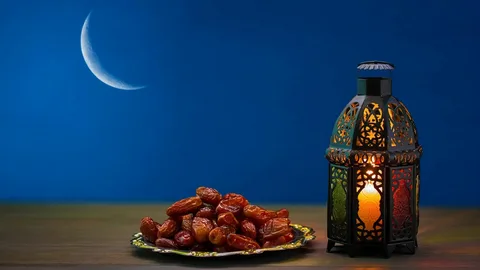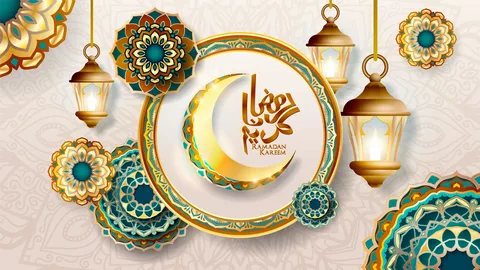Ramadan Kareem, often simply referred to as Ramadan, is a sacred month observed by Muslims worldwide. It is a time of spiritual reflection, self-discipline, and heightened devotion. Let’s delve into the significance of Ramadan and the various practices associated with this holy month.
Meaning of Ramadan

Ramadan holds deep significance in Islam as it marks the month when the Quran, the holy book of Islam, was first revealed to Prophet Muhammad (peace be upon him). The word “Ramadan” is derived from the Arabic root “ramiḍa,” which means scorching heat or dryness, symbolizing the thirst for spiritual nourishment.
History and Significance
The history of Ramadan dates back to the time of Prophet Muhammad (peace be upon him) in the 7th century. It is believed that the Angel Gabriel first appeared to the Prophet during Ramadan and began revealing the verses of the Quran to him. Since then, Ramadan has been observed as a month of fasting, prayer, and reflection by Muslims worldwide.
Fasting in Ramadan
Fasting in Ramadan is one of the Five Pillars of Islam, fundamental acts of worship that are obligatory for all Muslims. It begins with the pre-dawn meal called Suhoor and ends with the breaking of the fast at sunset, known as Iftar. The fast is broken with dates and water, following the tradition of Prophet Muhammad (peace be upon him), before performing the Maghrib prayer.
Spiritual Reflection
Ramadan encourages believers to engage in introspection, seeking forgiveness for past sins, and striving for self-improvement. It is a time for increased prayer, recitation of the Quran, and acts of charity. Muslims believe that the rewards for good deeds during Ramadan are multiplied manifold, making it an opportune time for spiritual growth.
Community and Charity
Ramadan fosters a sense of unity and compassion among Muslims. It is common for families and communities to come together for Iftar meals, where they break their fast and share blessings. Additionally, Muslims are encouraged to engage in acts of charity, such as feeding the needy, donating to mosques, and helping those less fortunate.
Ramadan Traditions
Throughout Ramadan, various traditions are observed, including increased attendance at mosques for nightly prayers called Taraweeh, recitation of special prayers known as Duas, and the performance of Itikaf, where devotees seclude themselves in mosques for spiritual retreat.
Ramadan Kareem Around the World
Ramadan is celebrated with fervor and enthusiasm in Muslim-majority countries and communities worldwide. From the bustling streets of Cairo to the serene mosques of Istanbul, the spirit of Ramadan unites Muslims of diverse cultures and backgrounds in a shared experience of faith and devotion.
Family and Social Gatherings
One of the joys of Ramadan is the opportunity it provides for family and social gatherings. Whether it’s sharing meals with loved ones, visiting relatives, or participating in community events, Ramadan brings people together in a spirit of love, generosity, and solidarity.
Importance of Ramadan in Islam

Ramadan is one of the holiest months in Islam, holding great significance for Muslims worldwide. Its importance stems from several key aspects deeply ingrained in Islamic faith and practice:
- Spiritual Reflection and Renewal: Ramadan is a time for Muslims to engage in self-reflection, introspection, and spiritual renewal. Through fasting, prayer, and acts of charity, believers seek to strengthen their connection with Allah and purify their souls.
- Fasting (Sawm): The most distinctive feature of Ramadan is fasting, known as Sawm. Muslims abstain from food, drink, smoking, and other physical needs from dawn until sunset. This act of self-discipline fosters empathy for the less fortunate and cultivates self-control, humility, and gratitude.
- Communal Worship and Unity: Ramadan fosters a sense of community among Muslims. The nightly Taraweeh prayers, breaking fast together (Iftar), and pre-dawn meal (Suhoor) create opportunities for believers to come together in worship and strengthen bonds with family, friends, and the wider Muslim community.
- The Revelation of the Quran: Ramadan is believed to be the month in which the Quran, the holy book of Islam, was first revealed to the Prophet Muhammad (peace be upon him) by the angel Gabriel. Therefore, Muslims dedicate themselves to increased recitation and study of the Quran during this month, seeking guidance and spiritual nourishment from its teachings.
- Seeking Forgiveness and Mercy: Ramadan is a time for seeking forgiveness for past sins and seeking Allah’s mercy. Muslims believe that during this month, Allah’s blessings and mercy are abundant, and sincere repentance and good deeds are rewarded manifold.
- Developing Discipline and Character: Fasting during Ramadan helps Muslims develop discipline, self-control, and resilience. It teaches patience, empathy, and gratitude, fostering qualities essential for leading a righteous and fulfilling life.
- Elevating Spiritual Consciousness: Ramadan serves as a reminder of the transient nature of life and the importance of prioritizing spiritual growth and devotion. It encourages believers to deepen their relationship with Allah and strive for self-improvement in all aspects of their lives.
FAQs
Can children and the elderly participate in fasting during Ramadan?
Children are not required to fast until they reach puberty, while the elderly and those with health conditions are exempt from fasting but may offer alternative acts of worship.
How do Muslims determine the beginning and end of Ramadan?
Ramadan begins with the sighting of the new moon, and its end is marked by the sighting of the next new moon, typically lasting 29 or 30 days.
What is the significance of Laylat al-Qadr during Ramadan?
Laylat al-Qadr, or the Night of Decree, is considered the holiest night of the year, commemorating the night when the Quran was first revealed to Prophet Muhammad (peace be upon him).
How do Muslims celebrate Eid al-Fitr, the festival marking the end of Ramadan?
Eid al-Fitr is celebrated with communal prayers, feasting, and acts of charity, marking the culmination of Ramadan and the beginning of Shawwal, the next lunar month.
What is the purpose of Ramadan beyond fasting?
Ramadan serves as a time for spiritual reflection, self-discipline, and social solidarity, promoting empathy, gratitude, and personal growth among believers.
Conclusion
In conclusion, Ramadan Kareem is a time of profound spiritual significance for Muslims worldwide. It is a month of fasting, prayer, reflection, and community bonding, fostering a sense of unity, compassion, and devotion. Through acts of worship, charity, and self-discipline, believers seek to deepen their connection with Allah and strive for personal and collective renewal.


